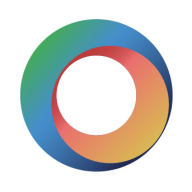

iServer and Mood are competitors in the enterprise architecture and IT management sector. While iServer's competitive edge lies in its pricing and support efficiency, Mood distinguishes itself with advanced functionalities.
Features: iServer offers comprehensive enterprise modeling, integration capabilities, and extensive reporting. Mood provides a strong emphasis on analytics and collaboration tools, excelling in analytical depth and collaborative features.
Ease of Deployment and Customer Service: iServer facilitates a streamlined implementation process and offers robust support for faster deployment. Mood focuses on deployment flexibility but may require more time for integration. Both provide effective customer service, though iServer offers quicker resolutions and smoother onboarding.
Pricing and ROI: iServer is recognized as a cost-effective solution delivering favorable ROI with lower setup costs. Mood requires a higher initial investment, promising greater returns through enhanced efficiency over time. iServer's pricing structure attracts those seeking immediate value, whereas Mood appeals to those investing up front for future benefits.
| Product | Market Share (%) |
|---|---|
| iServer | 4.3% |
| Mood | 1.0% |
| Other | 94.7% |

| Company Size | Count |
|---|---|
| Small Business | 7 |
| Midsize Enterprise | 3 |
| Large Enterprise | 10 |
iServer is a unified software platform and enterprise modeling environment that extends and enhances the familiar, market leading Microsoft Visio and Office products. Core capabilities provided by iServer include an enhanced Microsoft Visio diagramming interface, a powerful central repository for all enterprise architecture or business process models and documentation, and a range of tools for visualization, analysis and decision making.
Mood offers insightful tools designed to enhance employee engagement and monitor workplace well-being through real-time analytics. Its advanced functionalities support organizations seeking to understand and improve their work environment effectively.
Mood stands out by providing an intuitive platform that captures vital employee feedback. By utilizing precise analytical tools, it aids organizations in identifying trends and areas for improvement within their teams. Its streamlined approach encourages open communication and fosters a more cohesive workplace culture. With Mood, users can easily implement ongoing improvements based on detailed insights and data-driven recommendations.
What are the key features of Mood?Mood is effectively implemented within industries like healthcare and technology, where understanding employee sentiments rapidly impacts service quality and innovation. Its flexible survey mechanisms and real-time data analysis cater to dynamic industry environments, facilitating a proactive approach to workforce management.
We monitor all Enterprise Architecture Management reviews to prevent fraudulent reviews and keep review quality high. We do not post reviews by company employees or direct competitors. We validate each review for authenticity via cross-reference with LinkedIn, and personal follow-up with the reviewer when necessary.